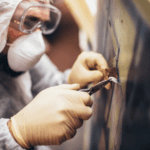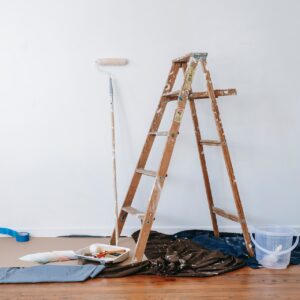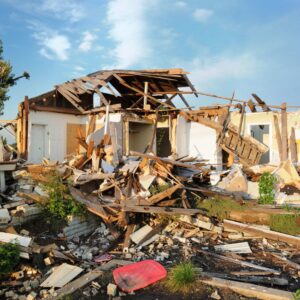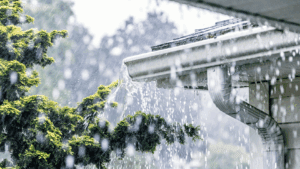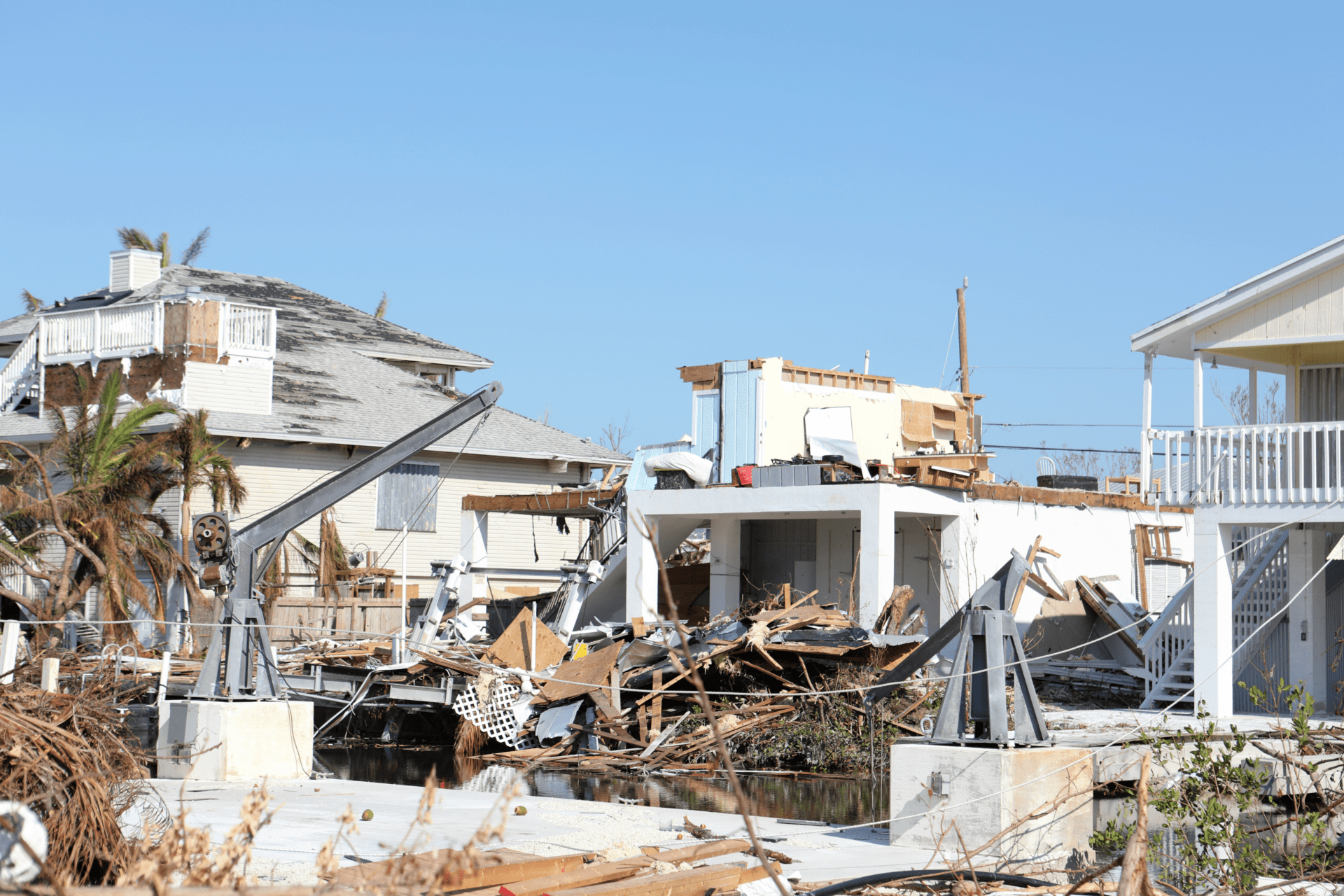
The aftermath of a hurricane can be devastating, leaving behind a trail of destruction that affects thousands of lives. With the recent devastation caused by Hurricane Helene and Hurricane Milton, which left many homes in ruins, knowing the right steps to take if your home is destroyed can be the difference between chaos and recovery. Whether you’re in the immediate aftermath of the storm or preparing for future incidents, this guide will help you navigate through this challenging time.
When is Hurricane Season?
Hurricane season typically runs from June 1 to November 30 in the Atlantic Ocean, Caribbean Sea, and Gulf of Mexico. This period marks the time when conditions are most favorable for hurricanes to form due to warm sea temperatures and atmospheric patterns. The peak of hurricane season usually occurs between August and October, with September being the most active month for storms. It’s important for residents in coastal and hurricane-prone areas, such as the state of Florida, to stay prepared during this time, as storms can develop rapidly and cause significant damage.
Key Facts About Hurricane Milton (2024)
Not long after the devastation of Hurricane Helene in Western North Carolina, one of the deadliest hurricanes to strike the US mainland in the last 50 years, Hurricane Milton has been a significant and destructive storm in 2024, known for its rapid intensification in the Gulf of Mexico. It reached Category 5 status before making landfall, with wind speeds over 180 mph before slightly weakening to Category 4 upon approaching Florida. Governor Ron DeSantis declared a state of emergency, while federal aid was approved by President Biden. Evacuation orders impacted millions in Florida, particularly in the Tampa Bay region. Although flooding wasn’t as catastrophic as anticipated, at least 19 tornadoes were confirmed, destroying homes in multiple counties.
With the recent devastation caused by Hurricane Milton, many Florida homeowners are grappling with the aftermath of a powerful storm. For those affected, knowing the right steps to take after a hurricane is crucial.
Contractors of Nashville are restoration experts with years of experience. We will walk you through 10 essential steps to take if a hurricane destroys your home, helping you navigate the recovery process with confidence and care.
1. Ensure Your Safety
The first and most important step is to ensure the safety of yourself and your loved ones. If you were evacuated due to Hurricane Milton, wait for local authorities to give the all-clear before returning to your home. The storm’s aftermath may have caused flooding, downed power lines, or weakened structures that are unsafe. If you’re still in the area, prioritize moving to a safe shelter if your home is too dangerous to occupy.
2. Contact Emergency Services
When a hurricane hits, many communities see emergency services stretched to their limits. However, it’s essential to report any life-threatening issues, such as injuries or fires, immediately to 911 or local emergency numbers. First responders are often overwhelmed after a hurricane, but persistent calls are necessary to get help where it’s needed.
3. Apply for Federal Aid
In the wake of large-scale disasters like Hurricane Milton, federal disaster declarations open up funding and resources for those affected. Visit the Federal Emergency Management Agency (FEMA) website to apply for aid, which may include grants for temporary housing, home repairs, or other critical needs.
4. Notify Your Insurance Company
Hurricanes have left thousands of homeowners scrambling to file claims. Contact your insurance company as soon as possible to notify them of the damage. Many companies provide 24-hour hotlines specifically for hurricane-related claims. Provide them with all necessary information and keep copies of every communication for your records.
Learn more about what to expect when filing a home disaster insurance claim with Contractors of Nashville.
5. Assess the Damage
Once authorities declare it’s safe to return, carefully assess the damage to your home. Begin by thoroughly inspecting both the interior and exterior of your property. Document the damage by taking clear photos and videos of everything—broken windows, roof damage, waterlogged furniture, and any structural issues. This visual evidence is critical when filing insurance claims and will help provide a comprehensive record of your losses. Keep detailed notes as you go to ensure no detail is overlooked.
Additionally, consider checking hidden areas such as attics, basements, and behind walls if possible, as water damage and mold can develop there unnoticed. Hurricanes like Milton can cause widespread destruction, so documenting everything ensures you have a solid record of what was lost.
6. Prevent Further Damage
After a storm, hurricane victims are encouraged to take steps to mitigate further damage to their properties. While waiting for insurance assessors, you should cover broken windows, place tarps over holes in the roof, and remove valuables from flooded areas if possible. Keep receipts for any materials or services used for temporary repairs—these may be reimbursable by your insurance.
7. Secure Temporary Housing
If your home is uninhabitable, you may need to find temporary housing. As seen with Hurricane Milton, many communities offer shelters, and some insurance policies include provisions for temporary living expenses. Contact your insurer to understand what’s covered and start looking for local shelters or rental properties.
8. Check for Local Relief Programs
After Hurricane Helene and Hurricane Milton, several local governments and nonprofits launched relief programs to help homeowners rebuild. Check with your community organizations, local government, or relief agencies for any assistance programs. These resources can provide financial help, supplies, and even volunteer labor to get you back on your feet.
Hurricane Milton Relief Programs
Hurricane Helene Relief Programs
9. Work with a Local Contractor for Repairs
Home restoration after a hurricane is a monumental task. After a hurricane strikes, many homeowners are quickly searching for contractors to help repair or rebuild their homes. It’s crucial to hire licensed, reputable professionals to avoid scams. Be wary of contractors who demand upfront payment and don’t have proper documentation or insurance.
10. Take Care of Your Mental Health
Recovering from a disaster like a strong hurricane isn’t just about rebuilding homes; it’s also about rebuilding lives. The stress and emotional toll can be overwhelming. Seek support from friends, family, or mental health professionals. Many hurricane victims experience trauma long after the storm has passed, and it’s important to recognize that rebuilding your emotional health is just as critical as the physical process.
Learn More With Contractors of Nashville
The road to recovery after a hurricane disaster may seem long and challenging, but by taking the right steps, you can ensure that your home and life are rebuilt stronger than before. Whether you’re dealing with insurance claims, looking for temporary shelter, or finding support from relief programs, remember that you’re not alone—there are resources available to help you through every stage of this journey. Stay informed, stay safe, and take each step with patience and perseverance.
Visit Contractors of Nashville for more resources about general construction and storm restoration.


